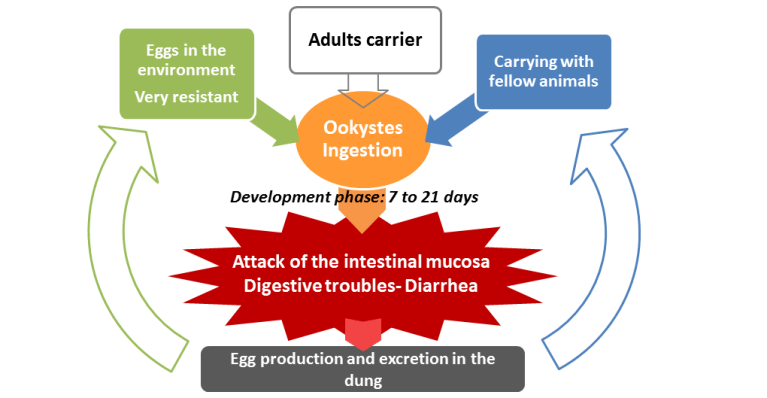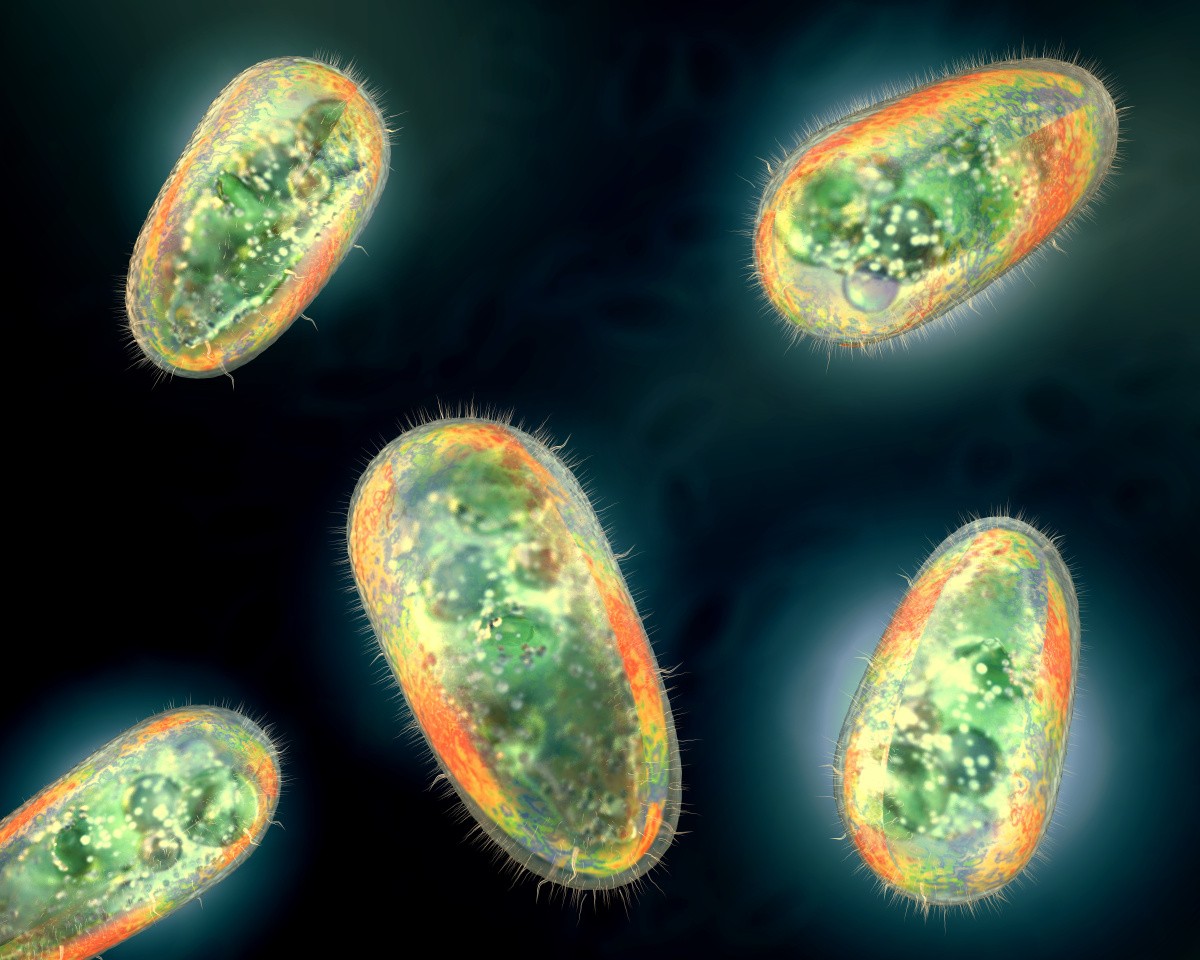Neonatal diarrhea, lethargy, loss of appetite, high mortality rate… Even though protozoa are naturally present in ruminants’ environments, they are potentially harmful to animals with weak immune systems. The application of simple and preventive measures can easily spare ruminants from issues related to pathogenic protozoa. Our approach favours, among other aspects, the prompt establishment of premunition and the disturbance of the parasite’s life cycle; eventually, these steps will lead to striking the right balance between the host and parasite.
The first months of ruminants’ lives correspond to the physiological and structural maturation of their digestive tract. Over the same period, ruminants are prey to various environmental aggressions: cold, humidity, virus, atmosphere, allotment stresses… These problems can have major impacts on these animals’ digestive flora. The proliferation of protozoa within the animal intestine can lead to major zootechnical issues. These can go to the point of threatening herd renewal: 25% mortality losses have already been reported in calves, lamb, and kid herds.
Protozoa in calves, lamb, and kids: a potential danger
These unicellular microorganisms are commensal hosts of young ruminants’ digestive tracts. In reasonable amounts, they have no visible effects on animals. However, the multiplication of certain strains of protozoa is a major threat to animals with weak immune systems. This notably takes place during high-stress periods such as weaning, feed changes, and environmental changes. Young animals are particularly vulnerable to cryptosporidium until three weeks old. They are also susceptible to coccidia from three weeks until 6 months old.
What is the timeline for a parasitic infestation? A few hours before birth, young animals are infected orally through contact with their mothers or other sick animals. Since they are devoid of efficient immunity, protozoa can easily enter their body in substantial amounts; they can eventually end up degrading epithelial cells in young bovine intestines.
The obvious signs of infestations are manifested by an acute diarrhea occurring after their fifth day of life. It is usually followed by a serious, if not mortal, dehydration. Once infected, each calf can, in turn, spread other oocytes, thereby becoming a new source of disease transmission.Une diarrhée aigüe apparaît souvent après le cinquième jour de vie. S’ensuit une déshydratation sévère, voire mortelle. Chaque veau dissémine à son tour d’autres oocystes, constituant alors un foyer infectieux à part entière.

The prevention of digestive troubles caused by protozoa in young ruminants
Animal density, heterogeneous mixes of calves, and hygiene problems are conducive to contamination. To ensure that protozoa are sufficiently contained, a few rules must be observed:
- Identify the problem: A parasitic fecal flotation undertaken in a specific laboratory allows for identifying the causes of diseases, whether these are linked to protozoa or other agents. The most researched and dangerous species are: Cryptospridium parvum, Eimeria bovis, Eimeria zuernii, Eimeria ovinoidalis, and Eimeria parva.
- Apply an appropriate vaccine, if needed. A suited vaccination and its rigorous application can help limit the development of bacteria (E.Coli, K99, CS31A Salmonella spp…) or of viruses (rota or coronavirus) that are likely to attack the intestinal mucosa before 10 days old. These aggressions can lead to digestive troubles during the first days. Then, they transform the environment by making it conducive to the multiplication of pathogens.
- Maintain animal housing in good hygiene… with a suited product. In-depth cleaning, disinfection, and depopulation of rearing units can help reduce the presence of protozoa.
- Accurately feeding mothers before and after farrowing… The suited nutritional program for mothers is the first balance that must be struck. With a satisfying diet and additional feed supplements, we will get quality colostrum; the young animal will, therefore, be less sensitive to exterior aggressions.
- Limit the risk of transmission between the mother and the calf… The upkeep of a balanced digestive flora before farrowing will reduce the number of protozoa transmitted to their offspring. It is, therefore, of the utmost importance to strengthen the immunity of mothers after calves’ weaning occurs or when they get back to the stable.
- Limit the impact of feed transitions undergone by young animals. Weaning, grazing, and allotments are periods that are likely to disturb the animal’s immune defences. This can result in the emergence of opportunistic pathogens.
The prevention related to the risk of a substantial presence of protozoa in young ruminants can be managed by applying rigorous and sustainable actions. Our specialists can offer advice on the methods of asymptomatic carrying reduction and optimal transmission of immunity. There are many solutions available, so do not hesitate to contact us!
Talk to our experts
Natual is a range of plant-based nutritional supplements designed to support the physiological functions of farm animals and crops, and in particular their natural defences.
